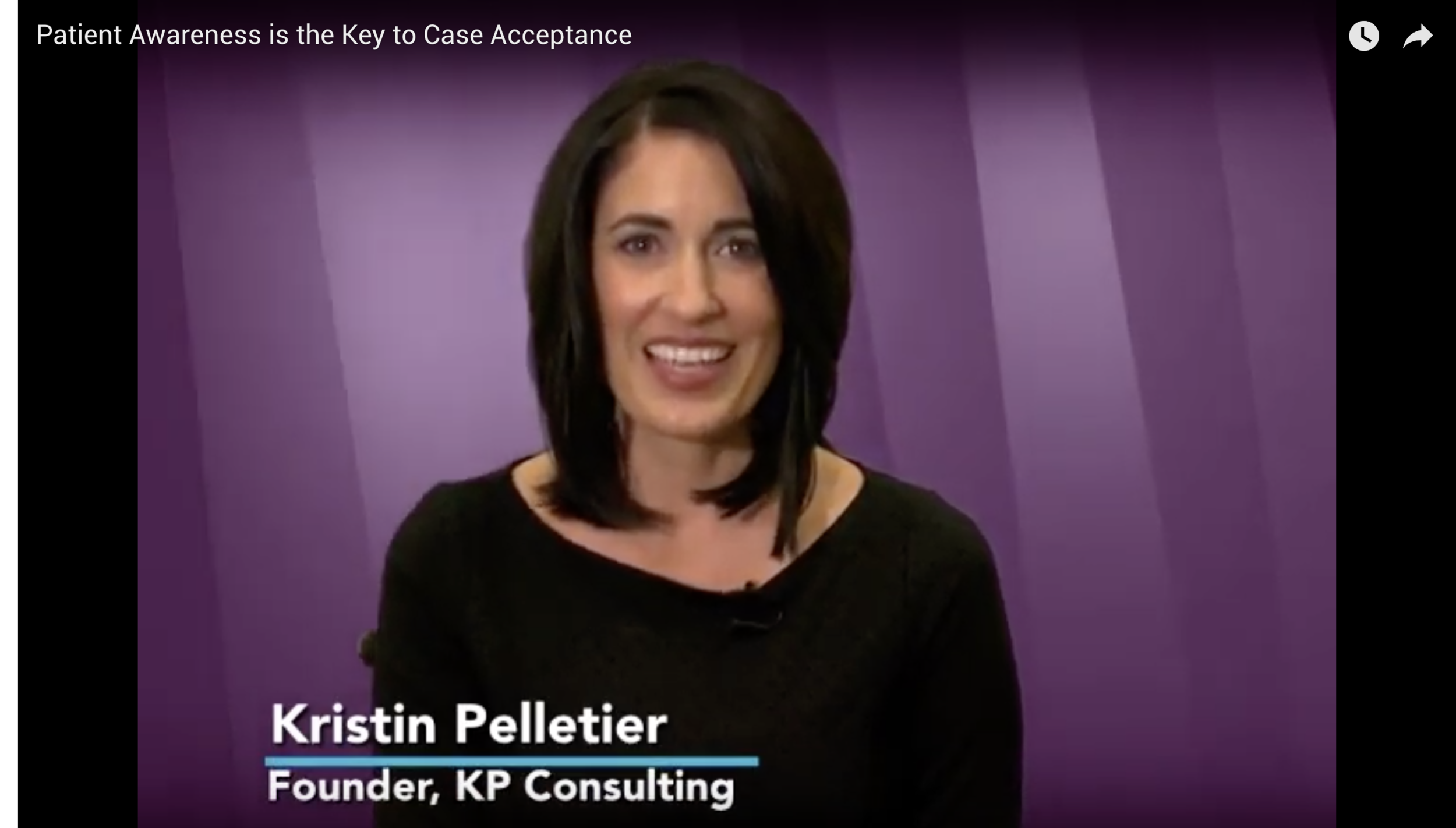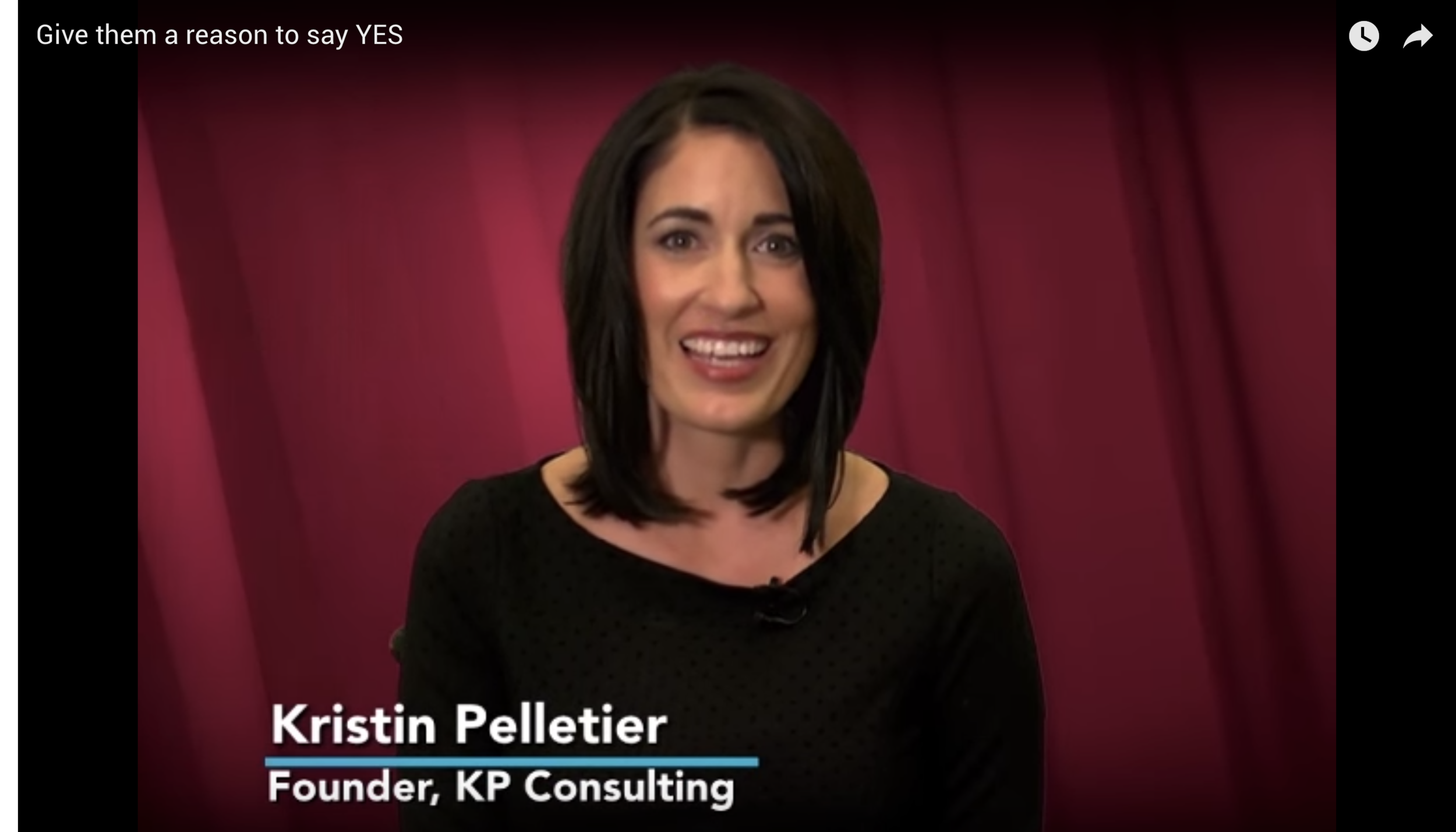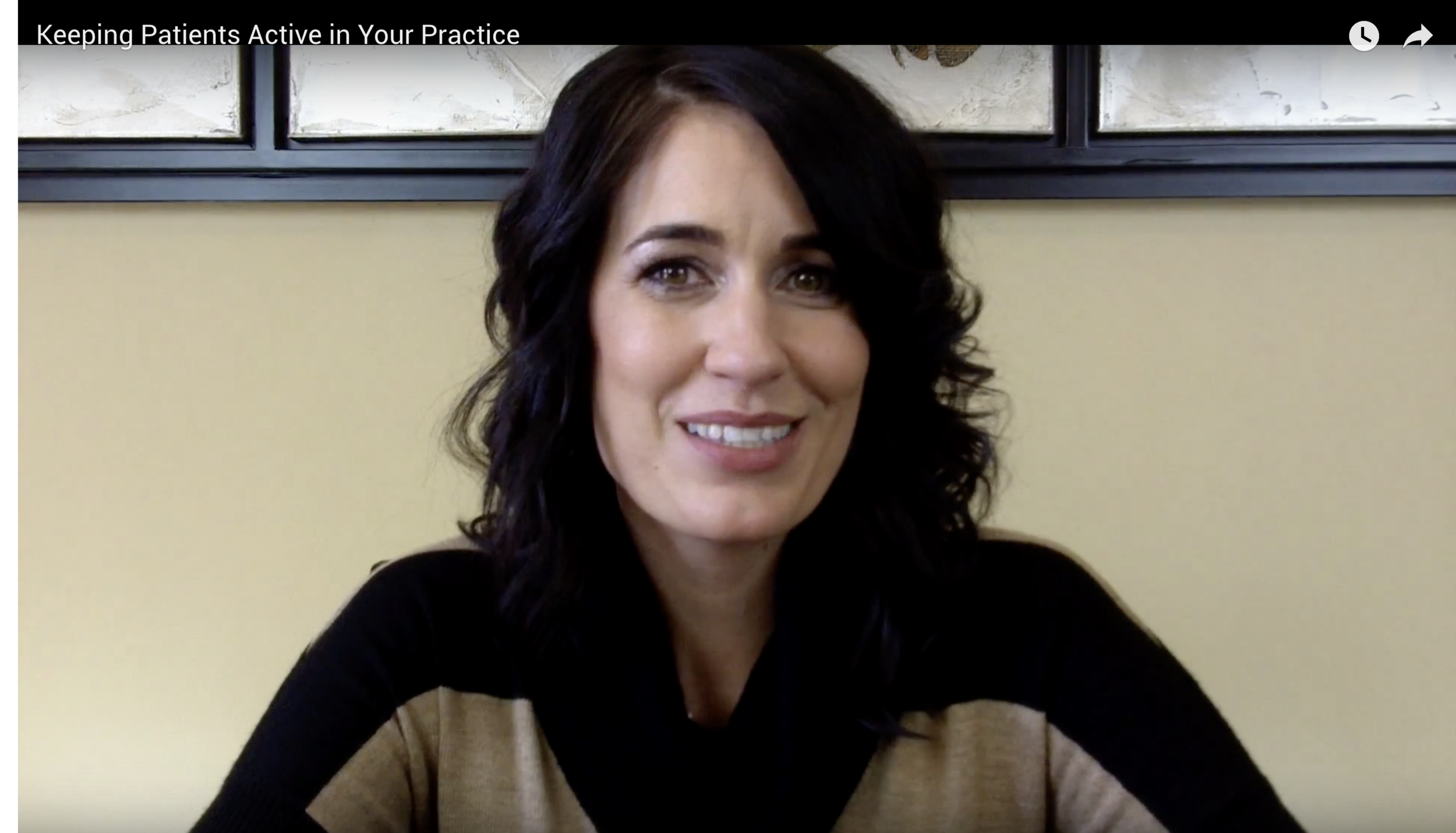As we approach my 2014 presentation of Case Acceptance: Getting to 'YES' workshop, I want to play an encore presentation of this video tip from last fall to remind you of how important it is to have an implementation plan for new ideas and strategies.
Read MoreThis is an encore presentation of one of my most popular video tips. It highlights how your practice values can impact the success of case acceptance for procedures not covered by insurance. I hope you enjoy this valuable tip.
Read MoreHave you ever had a new patient who was shocked by the amount of treatment you presented after your initial exam? I see this happen a lot in offices where a new patient - sometimes one who has been under another dentist’s care - has a lot of treatment needs.
Read MoreOne of the biggest barriers to higher case acceptance is insurance-driven patients. In many practices patients may actually be learning that behavior from their dental provider.
Read MorePatients don’t buy a root canal, a crown, or an indirect pulp cap. Instead, they buy dentistry that ensures they’re not waking up with a toothache, or they want to look better or have better self-esteem. People buy things that they want.
Read MoreMost offices that I work with have some form of continuing care system in place to keep their patients active in hygiene. What is often missing is a structured system to keep patients with restorative needs active in the practice. Putting a follow up system in place to track those patients is a critical part of improving your case acceptance process.
Read MoreThere is one question that can kill the entire case presentation - “Will my insurance cover this?” Many offices get off track when the patient asks this question. Instead of following through with treatment recommendations or finding out if there are other objections, they pass the patient to another team member to talk about insurance.
Read MoreIt is essential for systems and protocols to be in place in a dental practice so that team transitions can occur smoothly without interrupting the flow of the practice. People come and go, but having solid systems can prevent a huge disruption when team members change. Additionally, the learning curve for someone new is simplified when systems and processes are well documented.
Read MoreAs the leader of your practice, it’s up to the doctors to set the expectation concerning acceptable cell phone use in the dental practice. It is my personal belief that they are a distraction to productivity, and have the potential to keep your team from giving patients the full attention they deserve when they are in your office.
Read MoreDentists are spending a lot of time and money on patient attraction and marketing. Without a way to keep patients active in their practice most of these dollars are bringing people in one door and out the back. There is a solution to this problem.
Read MoreMany dental practices have a regular morning meeting, sometimes called a “morning huddle,” so they can review the day’s schedule and make sure everyone is on the same page. While it is important to review the schedule and prepare for the day, many practices miss the opportunity to really excel by not looking for hidden potential.
Read MoreIs your belief system concerning treatment recommendations for procedures that are not covered by insurance impacting your case acceptance?
Recently, I visited an office who said they believe that fluoride is beneficial for adults as well as children. Yet, their case acceptance for adult fluoride was almost non-existent.
Read MoreThe first quarter of 2014 is already behind us - how are you doing with your goals for the year? Many practices wait until the end of the second or even third quarter to take a look at where they are for the year in comparison to their goals. They are missing an important opportunity for an early check in so they can make corrections, take a different direction or add some things that will make it easier to reach their goals.
Read MoreThere are three main areas in your practice that create success: systems, team, and technology. Focusing just on technology, I've noticed that many practices are not taking full advantage of the technology that they have. Two common examples include practice management software and patient communication technology, such as Smile Reminder, Lighthouse, or Patient Activator.
Read MoreAsking questions is one of the most important skills that any member of your team can learn. Really getting to know your patients will help you build stronger relationships, increase your patient's trust and case acceptance, and improve their overall feeling about the care they are receiving.
Read MoreThere are three types of team members, and each has a profound impact on the overall success of your practice.
Read MoreDo you talk to your patients about benefits? Not insurance benefits but, instead, the extra value that they receive as a patient in your practice. Many offices provide great value for their patients, but sadly, the patients often have no idea.
Read MoreHow you use your time is a key component in creating a successful dental practice. It’s not enough to just fill your schedule with patients – you need to also carve out time for business development. This is a critical step in reaching your goals and the level of success that you want for your dental practice.
Read MoreI want to start by wishing all of you a happy New Year. This is one of my favorite times of year because the year is fresh, and it gives me the opportunity to really think about new ideas and what I want to accomplish over the next year.
Read MoreA new patient's phone call to your office is the first time your practice can make an initial impression on potential new patients. This is such a critical area to master that we could spend an entire day talking about this topic alone. The following four tips will help you hone your phone skills so you can convert more of your new patient phone calls into scheduled new patient appointments.
Read More



















